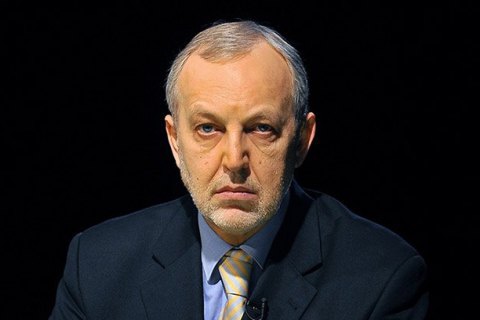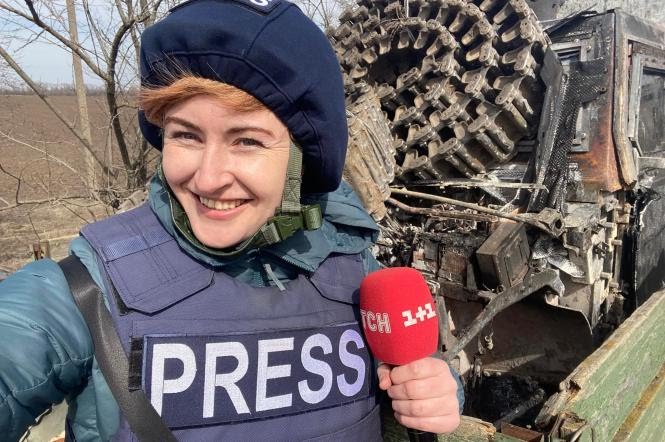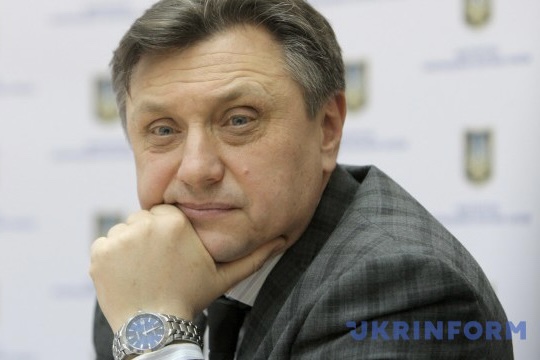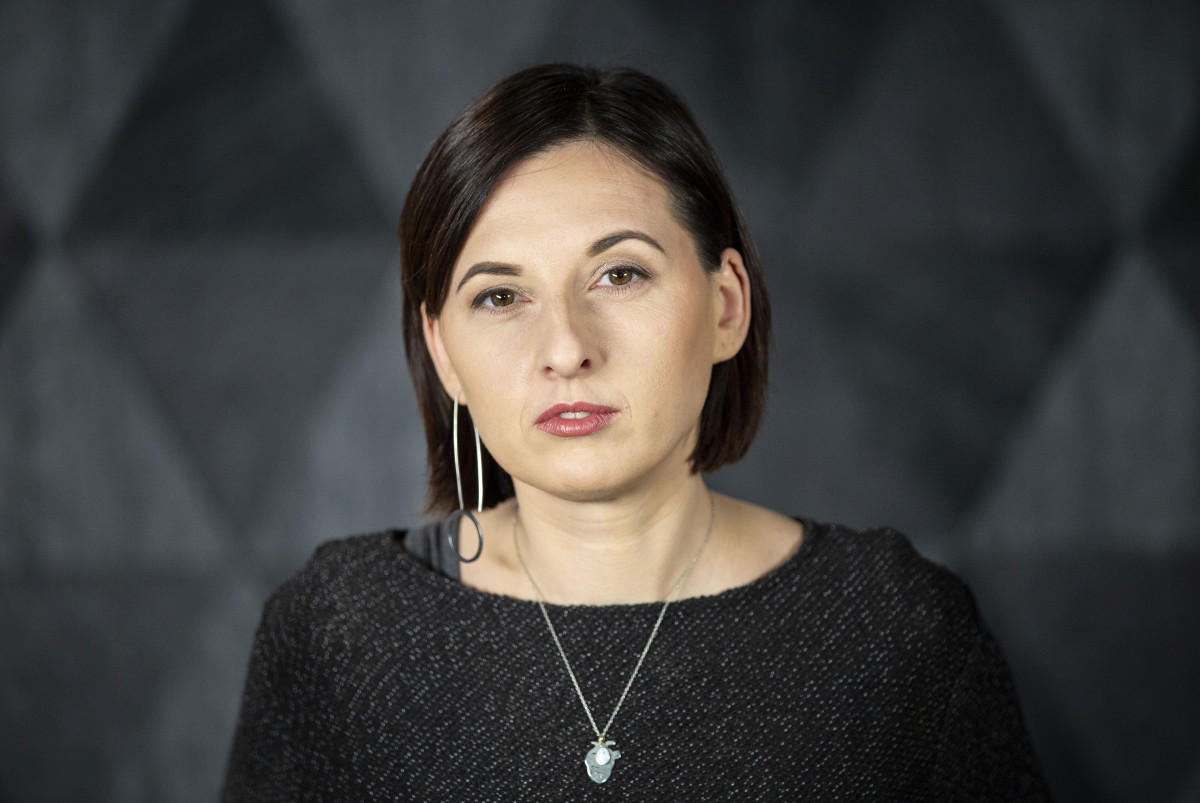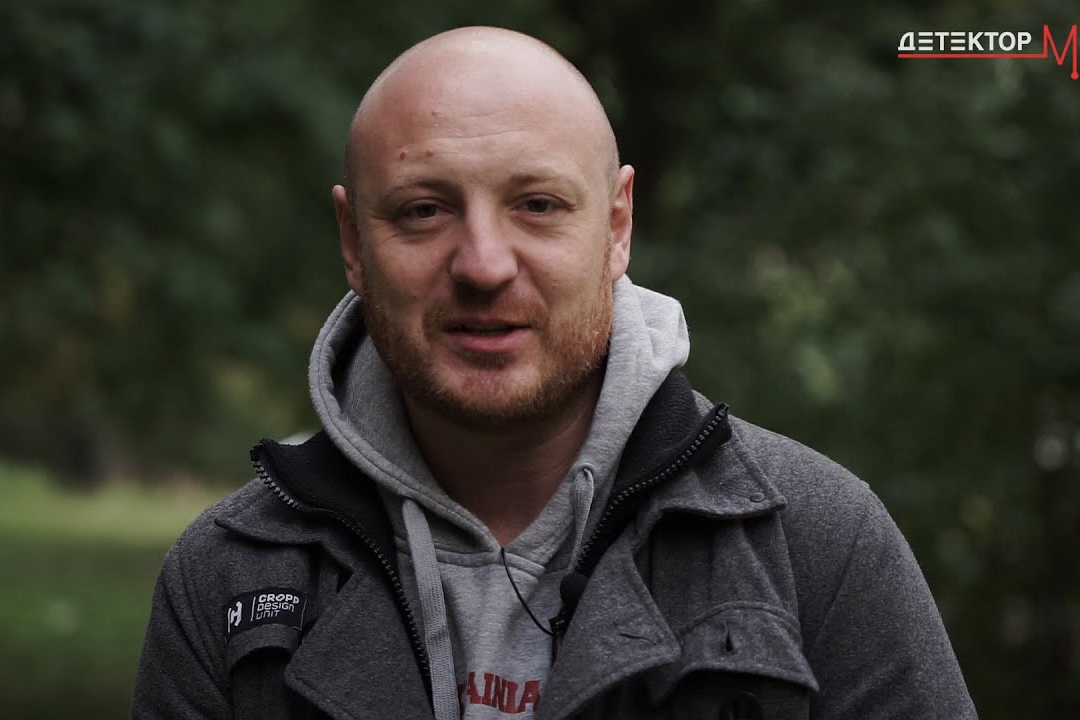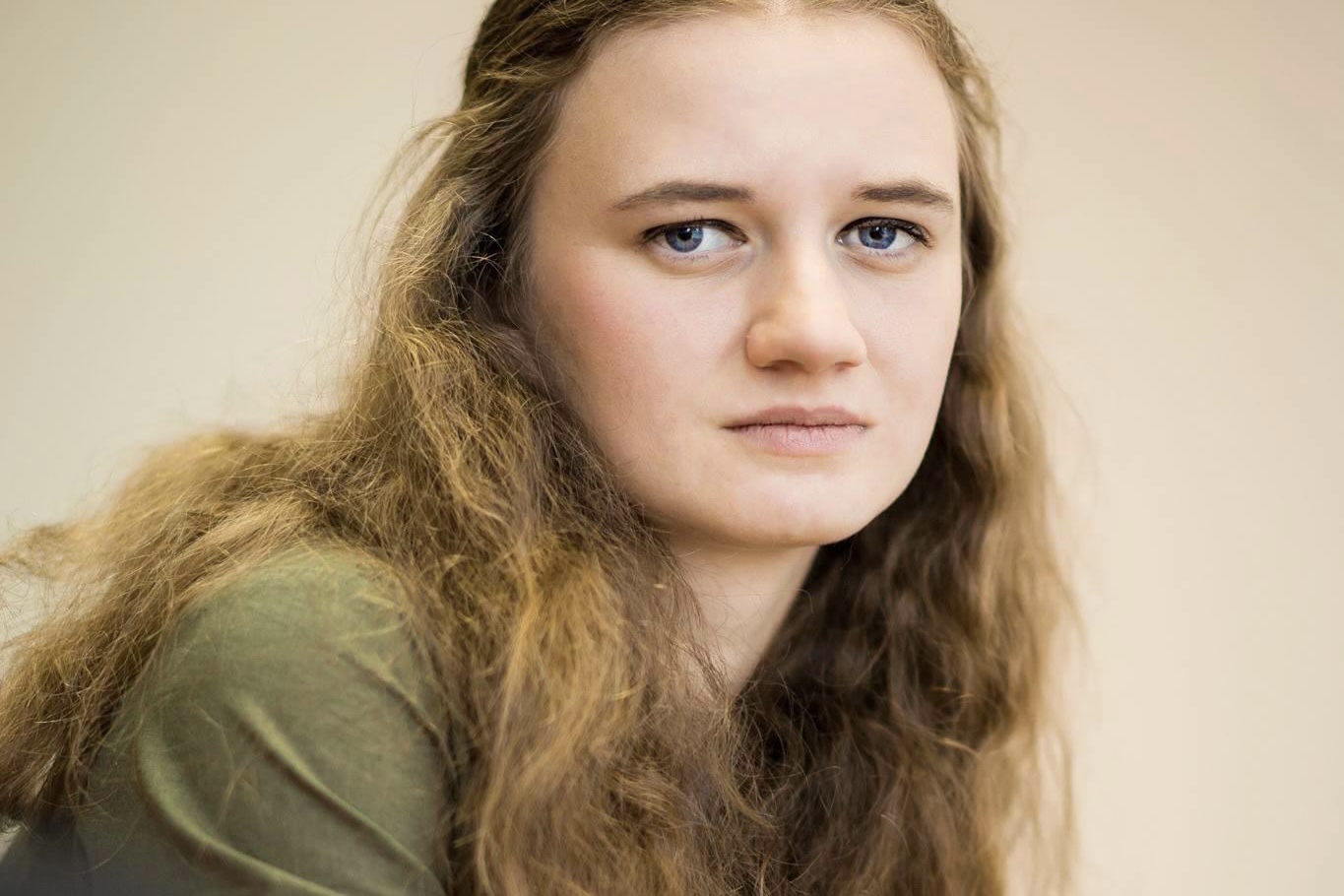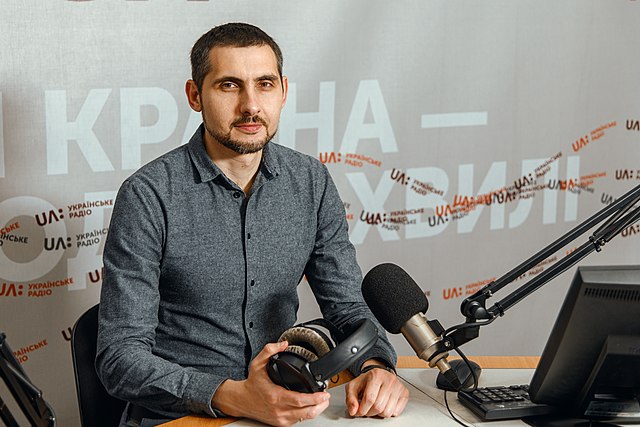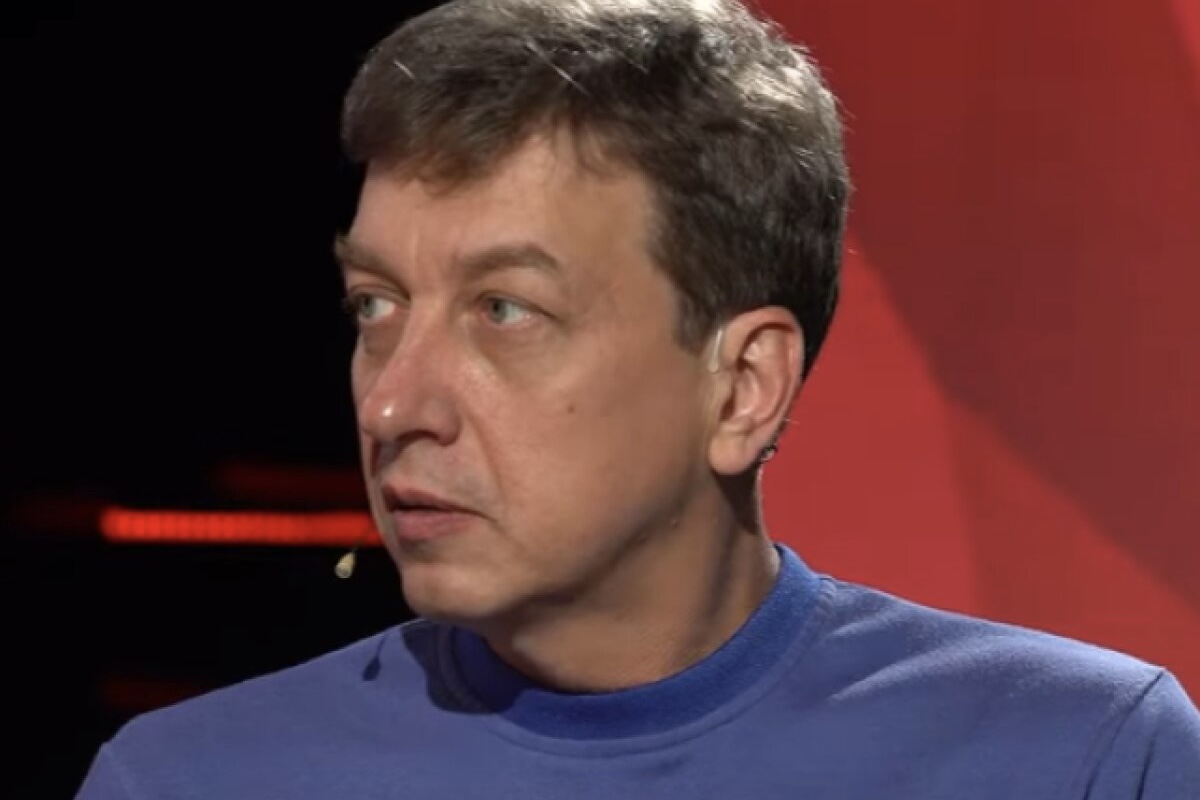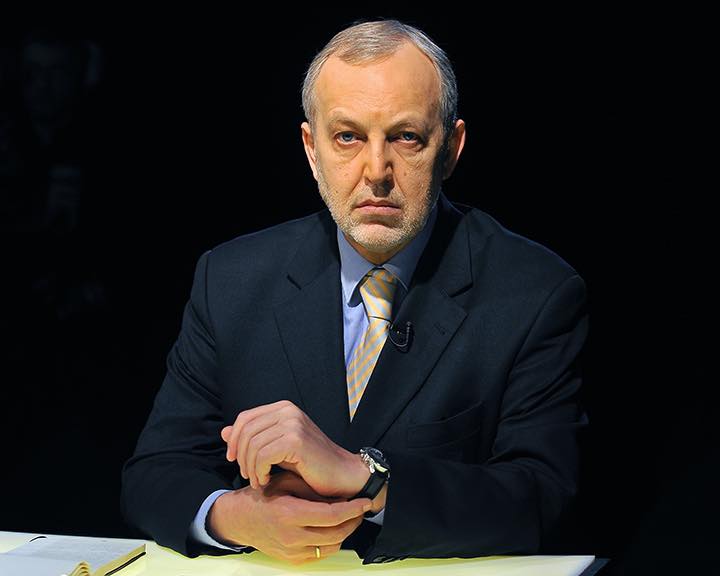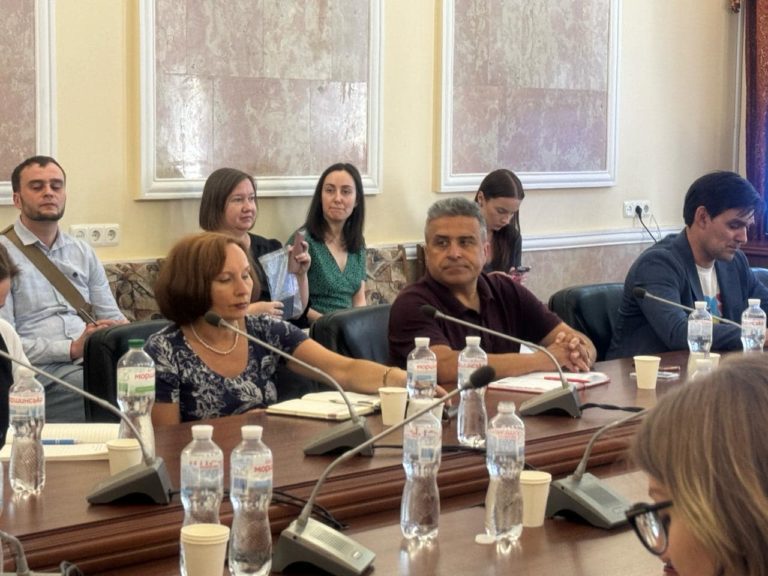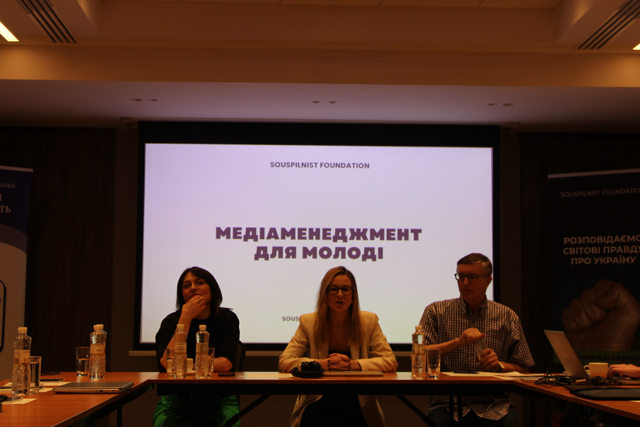Media experts discussed the work of journalists in combat zones, the training of new specialists in educational institutions, and the difficulties facing the media sector during wartime.
Yurii Makarov, journalist, TV presenter, documentarian, writer, editor-in-chief at UA:PBC, and chairman of the Taras Shevchenko National Prize of Ukraine Committee, Serhii Danylenko, director of the Institute of International Relations of the Taras Shevchenko National University of Kyiv and chairman of the board of Souspilnist Foundation, Nastia Stanko, editor at Hromadske TV, Natalka Nahorna, TSN special correspondent, Bohdan Kutiepov, journalist, Anastasiia Shybiko, director of Free Radio, Serhiy Stukanov, host of the programs Personal Affairs and Ukraine Today, and Oles Donii, journalist and head of the Last Barricade art association, took part in the discussion.
The moderators were Taras Petriv (Souspilnist Foundation) and Dmytro Tuzov (Radio NV).
The participants started off by discussing the changes undergone by the media community since the beginning of the full-scale invasion and directly affecting the question of what kind of journalist the Ukrainian newsrooms need at the moment.
Television has lost its total influence and a specific repressive state in the information field for the first time. Currently, Internet communities have taken the lead, mostly Telegram channels.
Consumers are getting detached from the need for verification procedures. In this sense, the professional community should carry three important messages:
- a report does not exist without an author;
- a masked anonymous message is irrelevant;
- we can rely on the rest depending on our sympathies, said Yuriy Makarov.
Professional training of journalists is another topical issue today. Serhii Danylenko drew attention to the expanding trend of acquiring fragmented knowledge to enter into the profession and the rapid production of specialists:
Rapid production of specialists will lead to the destruction of the journalist profession. We need people who don’t compete with artificial intelligence but think, bring value to society, and can clearly distinguish between propaganda and journalism.
Anastasiia Shybiko spoke about another challenge, saying it is crucial to understand that the central media are out of context when covering the hostilities or social issues that can be reported from another locality. Therefore, people want regional media outlets to cover important local issues.
Experts mentioned several specific features, knowledge, and skills journalists should have during wartime. It primarily has to do with stress resistance.
Now, the journalists’ work is often to document russian crimes, and it’s about constant death among the military and civilians. Sometimes we’ve hardly edited a report about a military unit when one of the characters dies, said Nastia Stanko.
Other vital features are multitasking and quickly responding to new challenges and tasks.
In 2014, TSN had 16 correspondents who could go to the frontline and film there. Now, we have 8-10 journalists, so we do need to train journalists who can replace us.
Journalists in combat areas have a workload ten times higher than their colleagues in the newsroom. Therefore, it’s necessary to prepare journalists who should get the material at the base, be knowledgeable in military topics, and edit the story. At the same time, we should bear in mind that the usual journalistic standards don’t work in wartime. We can’t promptly provide information, name the liberated localities, etc., Natalka Nahorna said.
Bohdan Kutiepov drew attention to the importance of verifying information by journalists, and Serhii Stukanov spoke about the importance of universality:
Journalists should be able to explain analytically the events occurring in various areas. Their pieces should be simple but done with the involvement of specialists and representatives of the authorities.
